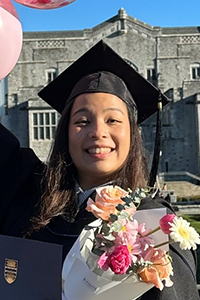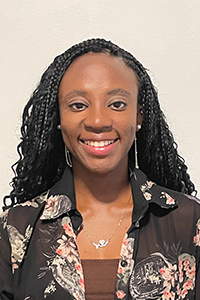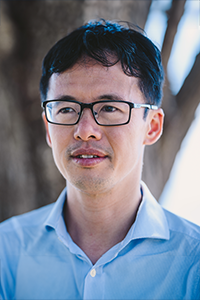 Dr. Adrian Yee is a 2024 recipient of the UBC Medical Alumni Association Honorary Medical Alumni Award.
Dr. Adrian Yee is a 2024 recipient of the UBC Medical Alumni Association Honorary Medical Alumni Award.
Dr. Adrian Yee (he/him/his), is a distinguished leader in medical education.
Dr. Yee completed his MD in Toronto, Hematology training in Edmonton, and the Master of Educational Technology at UBC in 2020. He currently serves as Director of Curriculum for the UBC MD Undergraduate Program. In this role, Dr. Yee provides province-wide curricular leadership, ensuring a high-quality educational experience for UBC medical students across all four sites and four years of the program. Dr. Yee has a passion for community-based and patient-centered innovation. He is the Principal Investigator for innovative projects in Virtual Care, Team-Based Care and Planetary Health. His career goals are to build on the distributed medical education model by advancing social accountability, community-centric education, and Indigenous Reconciliation.
Dr. Yee met his wife, Dr. Janet Mak, at the University of Toronto, and they have two amazing daughters, Michaela and Samantha, who keep him grounded, if not humble. Janet is a family physician with an interest in the care of the elderly. Adrian loves cycling, running, travelling with his family, kayaking, reading novels and listening to his daughters practice violin at home.
What drew you to UBC and the UBC Faculty of Medicine?
I am drawn to the UBC and the UBC Faculty of Medicine because of the commitment to social accountability, serving the communities and innovation. It is a privilege to be part of a dynamic, supportive, and innovative team dedicated to shaping the future of medical education. UBC’s focus on excellence, diversity, and collaboration aligns closely with my values.
I enjoy working with colleagues and learners from diverse backgrounds who bring unique insights and ideas that contribute to a more holistic approach to tackling real-world challenges. I love being challenged to examine our assumptions, to think outside the box, and being pushed to grow personally and professionally.
I am continually humbled by the generosity of my colleagues in sharing their knowledge and expertise. The UBC Faculty of Medicine’s work environment fosters creativity, and I love the can-do spirit.
What has been your career journey?
I completed my Hematology residency in 2004 and joined Island Health and the BC Cancer Agency in Victoria. In 2005, Dr. Kathy Gaul offered me the opportunity to teach in the Hematology block at the Island Medical Program (IMP), marking the beginning of my journey in medical education. Subsequently, I assumed the role of Clinician Educator for the IMP, where I mentored and supported learners facing academic challenges. I found great fulfillment in building relationships with learners, understanding their unique contexts, and contributing to their professional growth while serving the community.
Over the years, I have held various roles, including Assistant Dean at the Island Medical Program in Victoria, Associate Director for Years 3 and 4, and Director of Curriculum for Undergraduate Medical Education. I lead a team overseeing curricular design, enhancement, and innovation. Our core values revolve around Social Accountability and community-centric education, guiding our efforts in the complex distributed medical education system. I am grateful for the unwavering support that my colleagues, staff, and learners have provided throughout this journey.
What UBC Faculty of Medicine initiatives or projects have you been involved in that you are particularly proud of?
I am proud of many innovative initiatives I have led, from the exhilarating experience of leading curriculum renewal to adapting curriculum and delivery, more recently, leading our MD Undergraduate program’s curriculum delivery through a worldwide pandemic. I am particularly proud of designing Virtual Clinical Education Podcasts based on patient/caregiver partners’ perspectives.
I am grateful to the Strategic Investment Fund for supporting the Planetary Health project to create a BC Climate Health Knowledge Network. This funding will support our team to engage, learn from and listen to the community concerns and knowledge of Climate Health. I am proud to lead a team that aims to better understand these complex health and social issues, advance Indigenous Reconciliation, and engage historically underrepresented communities.
Could you share a specific moment or experience that reaffirmed your commitment to your role as a clinician, teacher, mentor, or administrator within the UBC Faculty of Medicine?
There are many defining moments, and I will share an experience of why I cherish the role as a clinician, teacher, and mentor. At a recent social event, one of my colleagues thanked me for the support, assistance, and mentorship through medical school. We all struggle occasionally and must remember kindness is the most important value. Seeing how learners grow and develop into practicing clinicians to serve our communities is gratifying. The ability to help and support learners to serve our communities matters more than anything else. I will continue to maintain and build on the connection with learners to be content and successful in serving the community.
What does receiving the Honorary Medical Alumni Award mean to you?
I take great pride and joy in receiving this award and am truly grateful for the recognition. I express my deepest gratitude to Dr. Cheryl Holmes for being an unwavering mentor, supporter, coach, and ally throughout my journey. Without the support of the UGME team, and the communities I serve, I would not have been able to achieve what I have.
Being acknowledged for our leadership work and our progress as a community fills my heart with warmth. The challenges brought about by the COVID pandemic have taught us the importance of unity and togetherness. We have learned that we are stronger when we stand together to achieve our common goals.
How has your identity affected your perspective on the field of medicine and future pursuits?
I have had the opportunity to live in various places, such as Hong Kong, Ethiopia, Singapore, Vancouver, London (Ontario), Toronto, and Edmonton. Throughout my upbringing, I have been fortunate to have the support of my parents and family, which I am deeply grateful for. They have instilled in me the values of hard work and kindness. The multiple relocations I experienced taught me to be adaptable, proactive in forging and maintaining friendships, and a rational change-maker.
As a medical educator and clinician, witnessing the lack of equitable health access for marginalized communities deeply saddens me. It is disheartening to see these inequities persist. I aim to build on our current education to advance community-centric education, social accountability, and Indigenous Reconciliation.
What is one thing you hope to accomplish in the next 10 years?
In the UBC communities, many colleagues inspire me; among them are Cheryl Holmes, Oscar Casiro, Bruce Wright, Kendall Ho, Angela Towle, John Pawlovich, Maria Hubinette, Derek Thompson, and Carolyn Canfield. These individuals demonstrate dedication and integrity in their community service and work ethic. They have deep knowledge and willingly share their expertise with others. I aspire to be like them in the next ten years. On a more practical level, I am fully committed to collaborating with the team to work on the Climate Health project.
What does a healthy society mean to you?
A healthy society gives individuals access to resources and opportunities that promote holistic well-being. In a healthy society, there is a focus on having a support system, a sense of community, equity, and environmental sustainability to promote health and well-being for everyone.
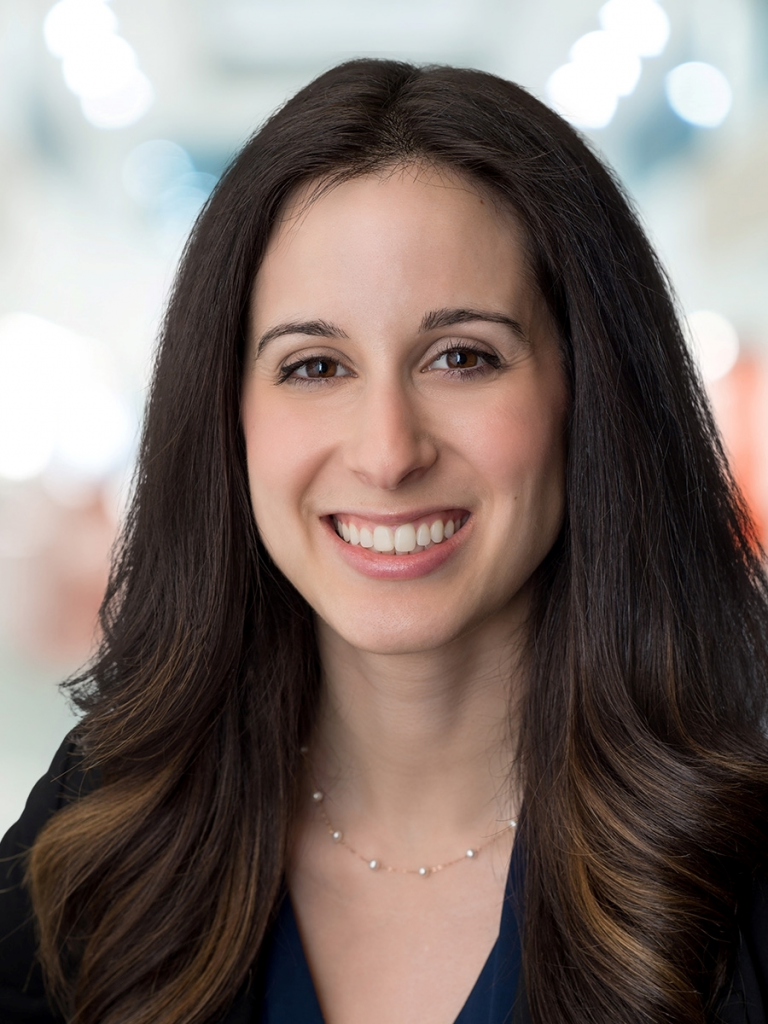 May Ashraf
May Ashraf Daniel Love
Daniel Love

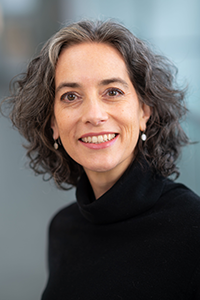 Dr. Silke Appel-Cresswell is a 2024 recipient of the UBC Medical Alumni Association
Dr. Silke Appel-Cresswell is a 2024 recipient of the UBC Medical Alumni Association 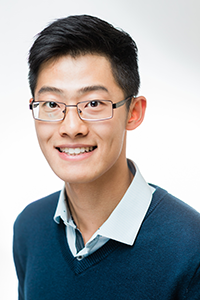
 Valerie Mok is a 2024 recipient of the UBC Medical Alumni Association
Valerie Mok is a 2024 recipient of the UBC Medical Alumni Association 

 Dr. Adrian Yee is a 2024 recipient of the UBC Medical Alumni Association
Dr. Adrian Yee is a 2024 recipient of the UBC Medical Alumni Association 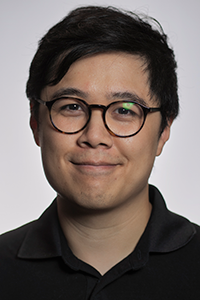 Dr. Ricky Tsang is a Vancouverite who attended UBC for undergraduate studies and medical school, the latter after a brief foray into the corporate world. He is also an aspiring amateur cook who enjoys “mucking about in the kitchen and not following recipes.” In January 2024, Dr. Tsang received the Medal of Good Citizenship from the Province of BC for his contributions to community live in British Columbia.
Dr. Ricky Tsang is a Vancouverite who attended UBC for undergraduate studies and medical school, the latter after a brief foray into the corporate world. He is also an aspiring amateur cook who enjoys “mucking about in the kitchen and not following recipes.” In January 2024, Dr. Tsang received the Medal of Good Citizenship from the Province of BC for his contributions to community live in British Columbia.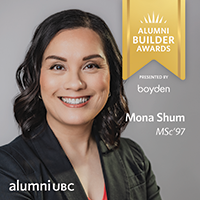 Mona Shum is the 2023–24 UBC Alumni Builder Award – Faculty of Medicine Recipient.
Mona Shum is the 2023–24 UBC Alumni Builder Award – Faculty of Medicine Recipient.